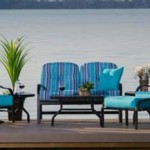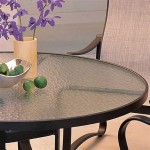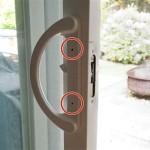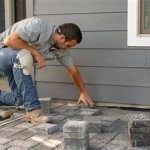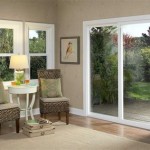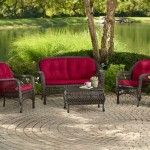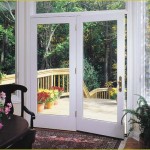Consumer Reports: A Guide to Evaluating Sliding Patio Doors
Sliding patio doors offer a seamless transition between indoor and outdoor living spaces, providing natural light and ventilation while adding aesthetic appeal. However, the market is flooded with options, each varying in materials, features, and performance. This article, akin to a Consumer Reports assessment, provides a comprehensive guide to evaluating sliding patio doors, focusing on key performance indicators, materials, and security features that consumers should consider before making a purchase.
Selecting the right sliding patio door requires careful consideration of several factors that impact its long-term performance and suitability for a specific setting. These factors include energy efficiency, durability, security, ease of operation, and aesthetic appeal. Consumers should prioritize these aspects based on their individual needs and regional climate conditions.
Energy Efficiency: Minimizing Heat Loss and Gain
Energy efficiency is a crucial consideration, directly impacting heating and cooling costs. Key metrics to assess energy efficiency are the U-factor and the Solar Heat Gain Coefficient (SHGC). The U-factor measures the rate of heat transfer through the door; lower U-factors denote better insulation and reduced heat loss in winter and heat gain in summer. The SHGC measures the fraction of solar radiation admitted through the door; lower SHGC values indicate reduced solar heat gain, which is particularly important in warmer climates to minimize air conditioning costs.
Energy Star certification is a reliable indicator of energy performance. Doors with the Energy Star label meet or exceed specific energy efficiency criteria established by the U.S. Environmental Protection Agency (EPA). These criteria vary based on climate zones, ensuring that doors are appropriate for the specific regional conditions. Consumers should verify the Energy Star rating applicable to their location.
Glass type plays a significant role in energy efficiency. Options include single-pane, double-pane (insulated glass units or IGUs), and triple-pane glass. IGUs typically contain an inert gas, such as argon or krypton, between the panes to further reduce heat transfer. Low-emissivity (Low-E) coatings are often applied to the glass surface to reflect radiant heat, improving energy performance. Advanced glazing systems may incorporate multiple Low-E coatings and specialized films to optimize energy efficiency.
Frame material also contributes to energy efficiency. Common frame materials include vinyl, wood, aluminum, and fiberglass. Vinyl frames offer good insulation and are relatively low-maintenance. Wood frames provide excellent insulation and aesthetic appeal but require regular maintenance. Aluminum frames are strong and durable but are less energy-efficient than vinyl or wood unless they incorporate thermal breaks to reduce heat transfer. Fiberglass frames offer a balance of strength, durability, and energy efficiency.
Air leakage, measured by the air leakage rating (AL), indicates how well the door seals against drafts. Lower AL values signify better airtightness and reduced energy loss. Proper installation is critical to achieving optimal energy efficiency, regardless of the door's inherent performance characteristics. Gaps around the frame can compromise insulation and lead to air infiltration, negating the benefits of an energy-efficient door.
Material Durability and Expected Lifespan
The durability of a sliding patio door is directly related to the materials used in its construction. The frame, glass, and hardware must withstand exposure to weather elements, resist wear and tear, and maintain their structural integrity over time. Choosing materials appropriate for the local climate is essential.
Vinyl frames are resistant to rot, decay, and insect infestation, making them a popular choice for their low-maintenance characteristics. High-quality vinyl formulations are UV-resistant to prevent discoloration and degradation from prolonged sun exposure. The thickness and construction of the vinyl profiles impact their strength and resistance to warping or cracking.
Wood frames offer aesthetic appeal and natural insulation but require regular maintenance to prevent moisture damage. Periodic painting or staining is necessary to protect the wood from rot and insect infestation. Hardwoods, such as oak or maple, are more durable than softwoods, such as pine, but also more expensive.
Aluminum frames are strong and resistant to corrosion, making them suitable for coastal environments. However, aluminum is a good conductor of heat, necessitating thermal breaks to improve energy efficiency. Powder-coated finishes enhance the durability and appearance of aluminum frames.
Fiberglass frames are a composite material that offers a balance of strength, durability, and low maintenance. Fiberglass is resistant to warping, cracking, and rotting, and it can be painted or stained to match the aesthetic of the home. Fiberglass frames are typically more expensive than vinyl or aluminum but offer superior performance in harsh climates.
The hardware, including rollers, handles, and locks, should be made of durable materials that can withstand repeated use. Stainless steel or brass hardware is resistant to corrosion and provides long-lasting performance. High-quality rollers ensure smooth and effortless operation of the door.
The expected lifespan of a sliding patio door depends on the materials used, the quality of construction, and the level of maintenance provided. Vinyl and fiberglass doors can last for 20 years or more with minimal maintenance, while wood doors may require more frequent maintenance to extend their lifespan. Aluminum doors are durable but may require replacement of hardware components over time.
Security Features: Enhancing Home Protection
Security is a paramount consideration for sliding patio doors, as they can be vulnerable points of entry if not properly secured. A robust locking mechanism is essential to prevent forced entry. Multi-point locking systems, which secure the door at multiple points along the frame, offer enhanced security compared to single-point locks. Consider the quality and durability of the lock cylinder and the strike plate.
Reinforced frames and impact-resistant glass can further enhance security. Tempered glass, which is significantly stronger than standard glass, is more resistant to breakage. Laminated glass consists of multiple layers of glass bonded together with an interlayer, providing even greater resistance to impact. Security film can be applied to existing glass to make it more resistant to shattering.
Anti-lift devices prevent the door from being lifted off its track. These devices typically consist of pins or clips that engage with the track to secure the door. Security bars or charlie bars can be installed in the track to prevent the door from being opened even if the lock is compromised.
Consider adding a security system that integrates with the sliding patio door. Door sensors can detect unauthorized entry and trigger an alarm. Smart locks can be remotely controlled and monitored, providing additional security features.
Proper installation is crucial for ensuring the security of a sliding patio door. The frame should be securely fastened to the wall, and the locking mechanism should be properly aligned. Gaps around the frame can compromise security and should be sealed with caulk or weather stripping.
Landscaping can also contribute to security. Keep bushes and shrubs trimmed around the patio door to eliminate hiding places for intruders. Install motion-activated lights to deter potential burglars.
Ultimately, the ideal sliding patio door balances energy efficiency, durability, security, and aesthetic appeal. Researching different models and brands, comparing specifications, and reading customer reviews are essential steps in the decision-making process. Consulting with a qualified contractor or door specialist can provide valuable insights and ensure proper installation.

Everything You Need To Know About Sliding Glass Doors

Patio Door Ratings Reviews Pella

Restorations Series V5500 Sliding Patio Doors Mi Windows And

5 Of The Best Patio Doors For 2024 Milgard

Our Evaluation Of The Pella 150 Patio Door

Reviews For Mp Doors 72 In X 80 Smooth White Left Hand Composite Pg50 Sliding Patio Door With Built Blinds Pg 4 The Home Depot

Sunrise Series V4500 Sliding Glass Doors Mi Windows And

Masterpiece 72 In X 80 Smooth White Exterior And Interior Right Hand Composite Sliding Patio Door G6068r00201 The Home Depot

Andersen Vs Provia Patio Door Review

Options Available For Covering Sliding Glass Doors Home And Garden Life
Related Posts

